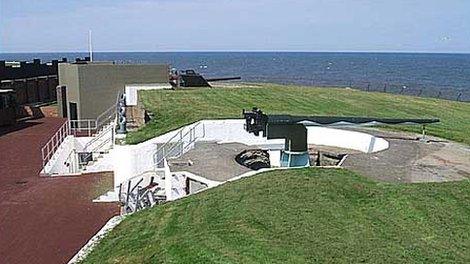Hartlepool bombing: British Navy 'did not rule the waves'
- Published
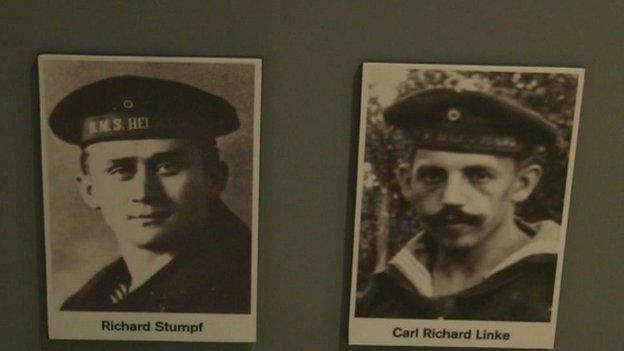
Many of the German sailors kept diaries and wrote letters home during the war
The coastal towns of Hartlepool, Scarborough and Whitby were shelled by German warships on 16 December 1914 - the first places on mainland Britain to be attacked during World War One. Letters and diary notes from the German sailors involved reveal their perspective of the attack.
"Our ships showed that not only does Britannia not rule the waves, but that it cannot even protect its coast."
This was the scathing summary of one young German sailor, writing in his diary, after the bombardment of Hartlepool.
For more than 40 minutes three German cruisers -the Blucher, Seydlitz and Moltke - pounded the town with shells leaving more than 100 civilians dead, 15 of them children on their way to school.
And as far as this sailor was concerned, victory over the British Navy was decisive. Britannia most certainly did not rule the waves, as the song claimed.
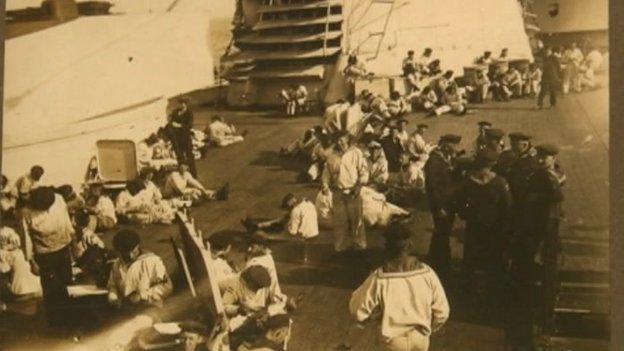
Historian Dr Stephan Huck said the German sailors had been frustrated and bored before the attack
Another jubilant German wrote home saying: "It wasn't the British who attacked the German coast, it was us who chucked the first grenades into the country despite their superior fleet, which was unable to keep hostile forces away from their own country."
Another letter home read: "Dear mother now at least I will be able to come home after the war. Today I received the Iron Cross and I'm very proud of it."
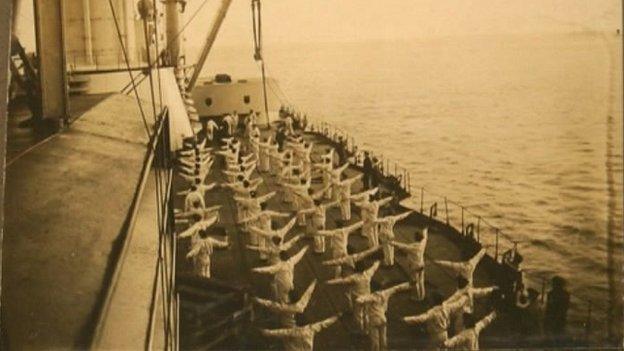
German sailors practising a drill on the deck during WW1
But the Germans did not escape completely unscathed.
British soldiers manning the Heugh battery in Hartlepool fired 123 rounds, mainly at the Blucher, damaging the ship's guns and killing nine men.
Before the attack on the British coastal towns, two recent battles at sea - one off the Falklands - had resulted in the deaths of 3,000 German sailors.
And the authorities were hell bent on revenge, according to historian Dr Stephan Huck, of the Deutsches Navy Museum in Wilhelmshaven, northern Germany.
The museum ran an exhibition to mark the centenary of the outbreak of WW1 featuring the diaries, letters and photographs of German sailors, as well as parts of ships, model cruisers and shells.
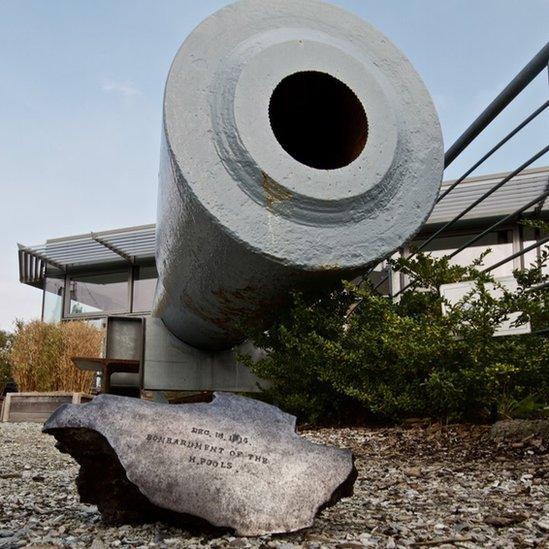
Gun barrel from the Seydlitz and a piece of one of the shells which hit Hartlepool
On the day of the attack on Hartlepool, the German Navy had set off in the mist from Germany.
Dr Huck said most of the German sailors were happy that something was happening and that they could prove the strength of the navy.
"When the war broke out the sailors, officers and the public expected a fast and decisive battle between the Royal Navy and the German Navy.
"But there were fears of losing the German Navy so it was kept on Helgoland protecting the coast and harbour," he explained.
"So the sailors were frustrated and bored. They were mostly, but not all, enthusiastic, but many in this war saw Britain as the aggressor and they wanted to prove the strength of the navy."
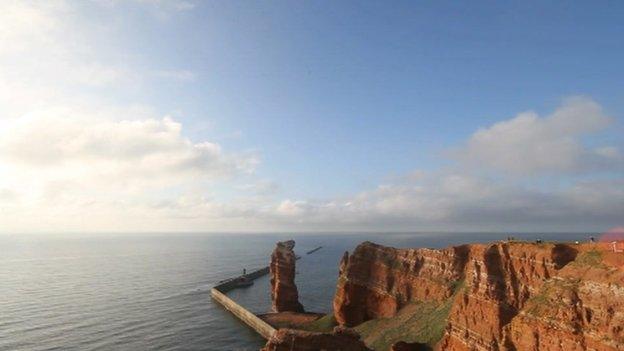
But when the call for action came, the man who was to lead the German bombardment on coastal towns, Rear Admiral Franz Hipper, was not keen and thought it too risky.
He wrote in his diary: "So don't cast stones if I fail to return or lose valuable ships. I'm only carrying out orders."
The exhibition at the museum is proving popular with visitors fascinated about the small part the German Navy played in World War One.
"Viewed as a global tragedy at the time, World War One at sea is largely forgotten," said Dr Huck.
"It was a war on land, in people's minds, and when we remember it we think of trenches and gas masks, not a war fought at sea."
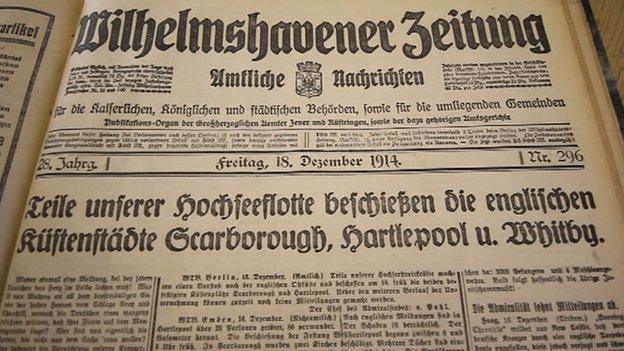
Referring to the British, a German paper said: "Who are the rats now who don't want to leave their holes"
Exhibition visitor, Holger Vanaart, has read up on this chapter of WW1.
"Reading the diaries of sailors and seeing their portraits give a different, more human, perspective on war, rather than reading the accounts in the history books," he said.
"Lessons to be learned include always be aware of your neighbours and how they feel about you and try and keep the peace."
And he added with a smile: "The warships are also very exciting for boys."
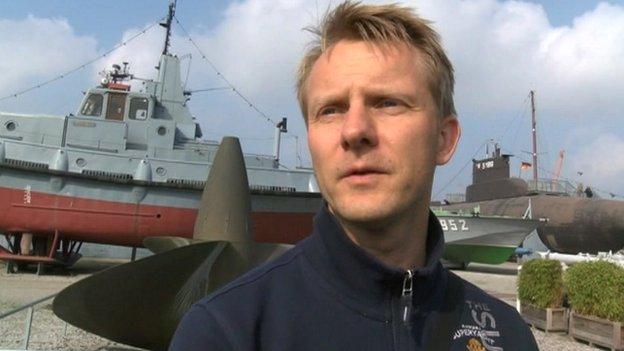
Exhibition visitor, Holger Vanaart, said the diary extracts brought the human aspect of war into focus
- Published16 December 2014
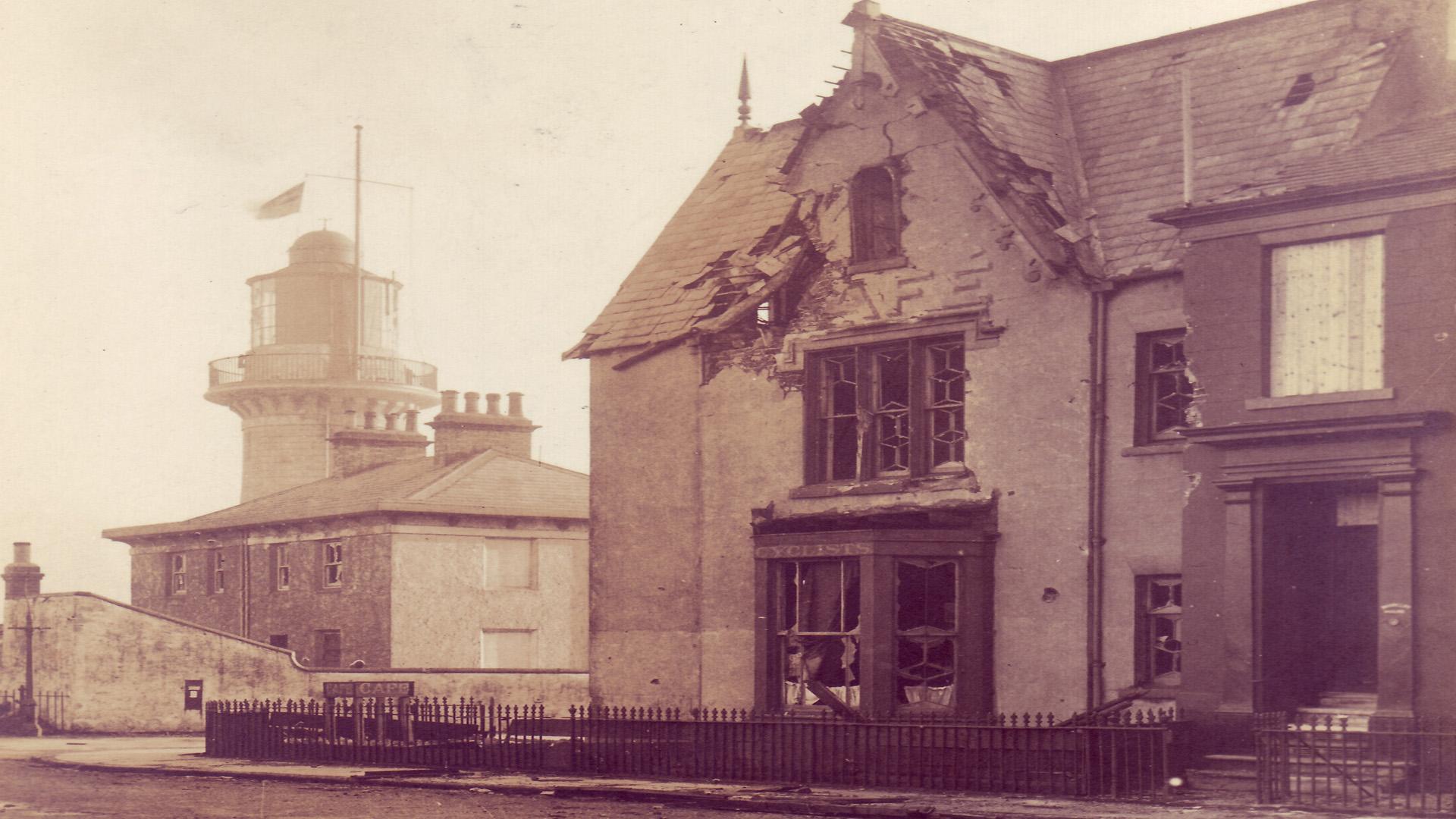
- Published16 December 2014
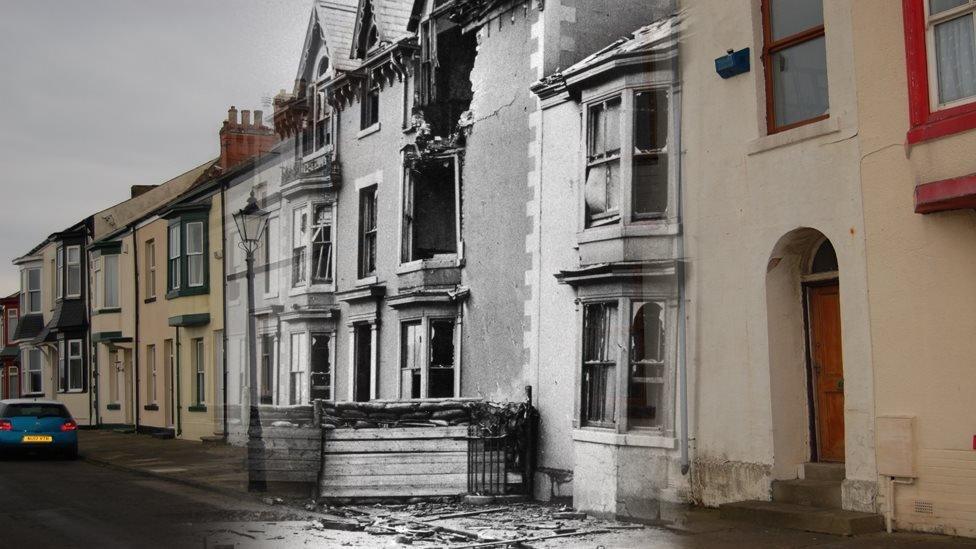
- Published10 June 2013
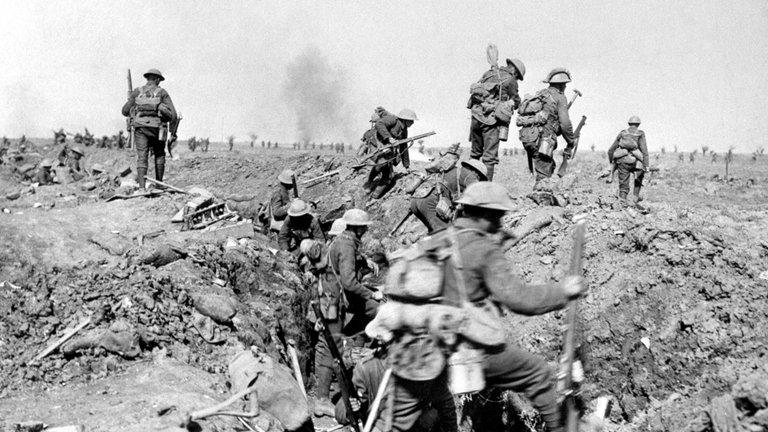
- Published1 August 2013
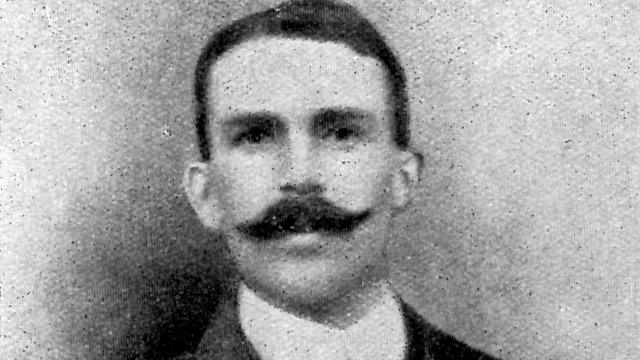
- Published31 March 2013
